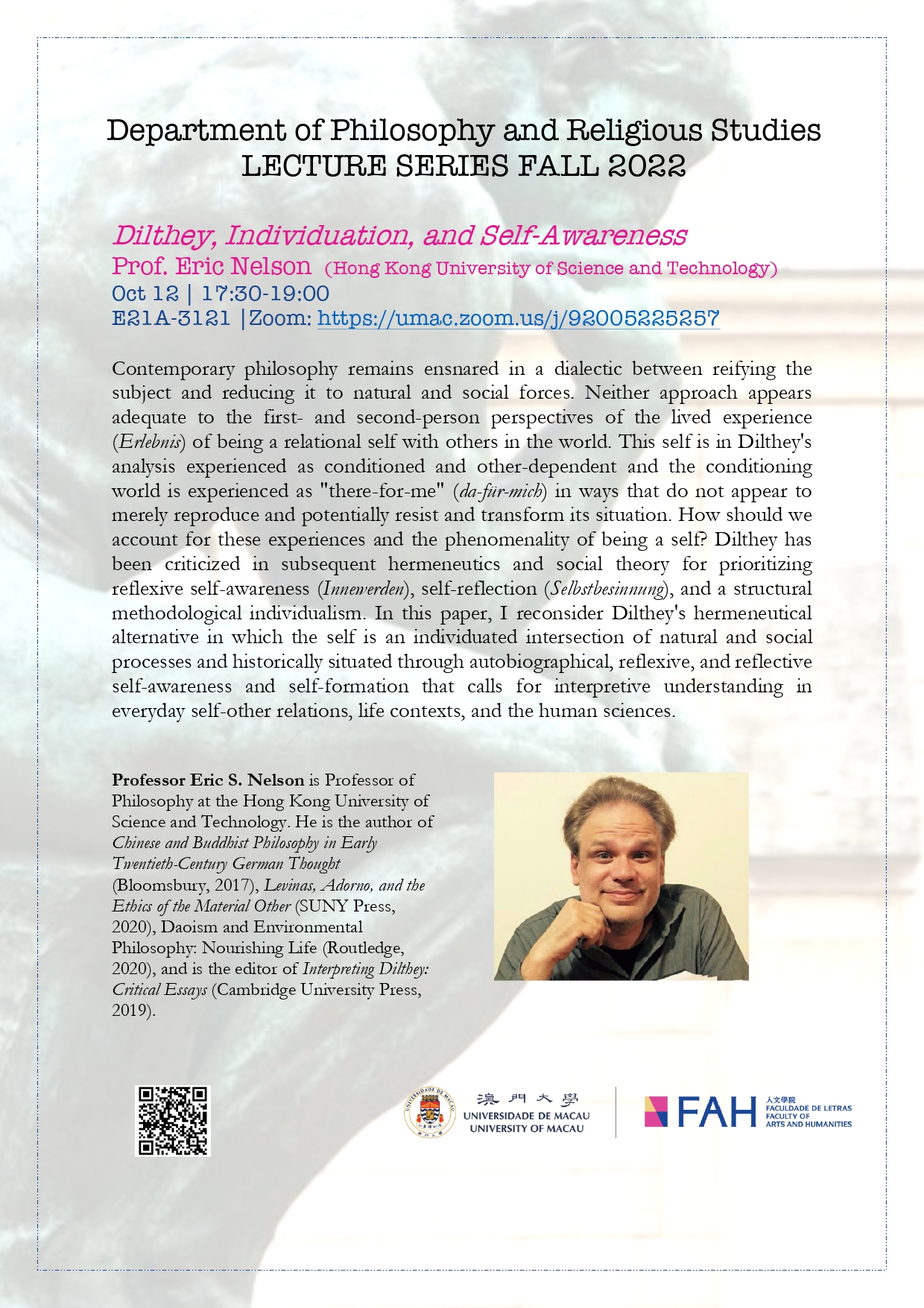

FAH/DPHIL Lecture Series – “Dilthey, Individuation, and Self-Awareness” by Prof. Eric Nelson, Hong Kong University of Science and Technology, Hong Kong
2022-10-12 @ 5:30 pm ~ 7:00 pm
Zoom: https://umac.zoom.us/j/92005225257
Abstract
Contemporary philosophy remains ensnared in a dialectic between reifying the subject and reducing it to natural and social forces. Neither approach appears adequate to the first- and second-person perspectives of the lived experience (Erlebnis) of being a relational self with others in the world. This self is in Dilthey’s analysis experienced as conditioned and other-dependent and the conditioning world is experienced as “there-for-me” (da-für-mich) in ways that do not appear to merely reproduce and potentially resist and transform its situation. How should we account for these experiences and the phenomenality of being a self? Dilthey has been criticized in subsequent hermeneutics and social theory for prioritizing reflexive self-awareness (Innewerden), self-reflection (Selbstbesinnung), and a structural methodological individualism. In this paper, I reconsider Dilthey’s hermeneutical alternative in which the self is an individuated intersection of natural and social processes and historically situated through autobiographical, reflexive, and reflective self-awareness and self-formation that calls for interpretive understanding in everyday self-other relations, life contexts, and the human sciences.
Bio
Professor Eric S. Nelson is Professor of Philosophy at the Hong Kong University of Science and Technology. He is the author of Chinese and Buddhist Philosophy in Early Twentieth-Century German Thought (Bloomsbury, 2017), Levinas, Adorno, and the Ethics of the Material Other (SUNY Press, 2020), Daoism and Environmental Philosophy: Nourishing Life (Routledge, 2020), and is the editor of Interpreting Dilthey: Critical Essays (Cambridge University Press, 2019).

